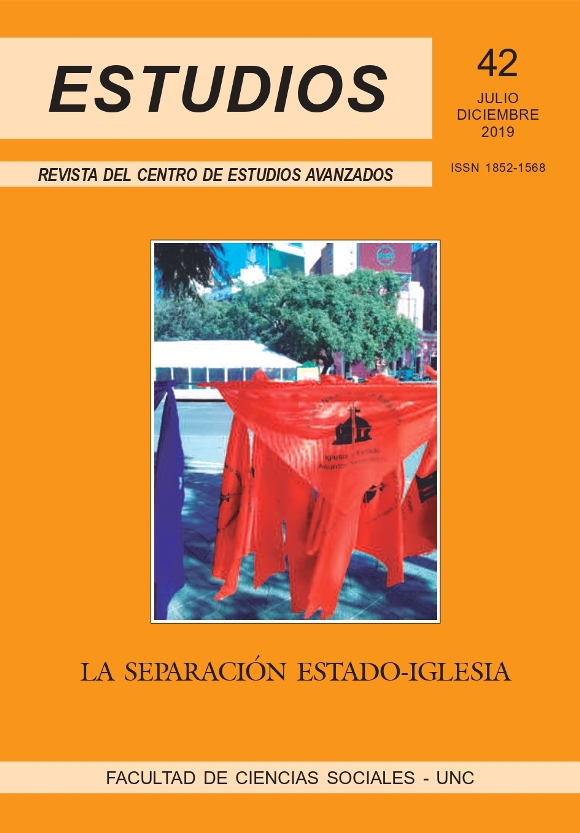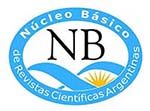Freedom of teaching? Attacked against freedom of conscience? Parliamentary discussions on the use of Brother Damasceno's manuals in the secular classrooms of Uruguay in the first half of the twentieth century
DOI:
https://doi.org/10.31050/re.vi42.25129Keywords:
State, religion, secularism, education, UruguayAbstract
The purpose of this article is to analyze the arguments of the parliamentary discussions that took place in 1932, around a national history book elaborated by a French religious and used in the educational institutions managed by the Uruguayan State. The juridical separation of Church and State was enshrined in the Constitution of 1919 in Uruguay, but the freedom of teaching was debated in the political cast due to the growth of schools and works of religious instruction. The books produced by Brother Damasceno included data on the religiosity of the Uruguayan people and their leaders, as well as the Church's performance in the historical processes from the colony to recent times. Their presence in the classrooms of the secular state was a topic debated in the government by various political sectors. In order to carry out this work, the works of this author were recovered and the parliamentary debates between August and October 1932 were consulted. Through these sources we seek to reconstruct the roles intended by the Church and the State in the first decades of the twentieth century.
Downloads
References
Achigar, N., Varela Brown, H., Eguren, B. (2011). Hermano Damasceno. Un aporte a la cultura uruguaya. Montevideo, Uruguay: Colegio Sagrada Familia.
Barrán, P. (2004). Los conservadores uruguayos (1870-1933). Montevideo, Uruguay: Banda Oriental.ç
Baubérot, J. (2015). Les sept laïcités françaises. París, Francia: Maison des Sciences de l’Homme.
Caetano, G. (1993). La República conservadora, Tomo 2. Montevideo, Uruguay: Fin de Siglo.
Caetano, G., Geymonat, R., Greising, C. y Sánchez, A. (2013). El Uruguay laico. Matrices y revisiones (1859-1934). Montevideo, Uruguay: Taurus.
Di Stefano, R. (2012) ¿De qué hablamos cuando decimos “iglesia”? reflexiones sobre el uso historiográfico de un término polisémico. Ariadna histórica. Lenguajes, conceptos, metáforas, 1, 197-222.
Di Stefano, R., Zanca, J. (Comps.) (2013). Pasiones anticlericales. Un recorrido iberoamericano. Bernal, Argentina: Universidad Nacional de Quilmes.
Geymonat, R. (Comp.). (2004). Las religiones en el Uruguay. Algunas aproximaciones. Montevideo, Uruguay: La Gotera.
Maiztegui Casas, L. (2005). El Hermano Damasceno: un pedagogo francés para la historia uruguaya. Prisma, (20), 99-111.
Oddone, J.A., (s/f). La historiografía uruguaya en el siglo XIX. Apuntes para su estudio. Disponible en: http://www.autoresdeluruguay.uy
Rial, A., Ruiz, E. (2002). Uruguay 1937-1938. De Terra a Baldomir (I) Escenario político y la sucesión presidencial. Montevideo, Uruguay: FHUCE.
Sansón, T. (2006). La construcción de la nacionalidad oriental. Estudios de historiografía colonial. Montevideo, Uruguay: UDELAR-FHUCE.
Segundo, L., Rodé, P. (1969). Presencia de la iglesia. Montevideo, Uruguay: Enciclopedia Uruguaya N° 37.
Zubillaga, C., Cayota, M. (1988). Cristianos y cambio social en el Uruguay de la modernización (1896-1919). Montevideo, Uurguay: Ediciones de la Banda Oriental.
Downloads
Published
How to Cite
Issue
Section
License
Aquellos autores/as que publiquen en esta revista, aceptan los términos siguientes:- Los autores/as conservarán sus derechos de autor y garantizarán a la revista el derecho de primera publicación de su obra, el cual estará simultáneamente sujeto a la Licencia Creative Commons Atribución-NoComercial 4.0 Internacional que permite a terceros compartir la obra siempre que se indique su autor y su primera publicación esta revista.
- Los autores/as podrán adoptar otros acuerdos de licencia no exclusiva de distribución de la versión de la obra publicada (p. ej.: depositarla en un archivo telemático institucional o publicarla en un volumen monográfico) siempre que se indique la publicación inicial en esta revista.
- Se permite y recomienda a los autores/as difundir su obra a través de Internet (p. ej.: en archivos telemáticos institucionales o en su página web) luego del proceso de envío, lo cual puede producir intercambios interesantes y aumentar las citas de la obra publicada. (Véase El efecto del acceso abierto).











